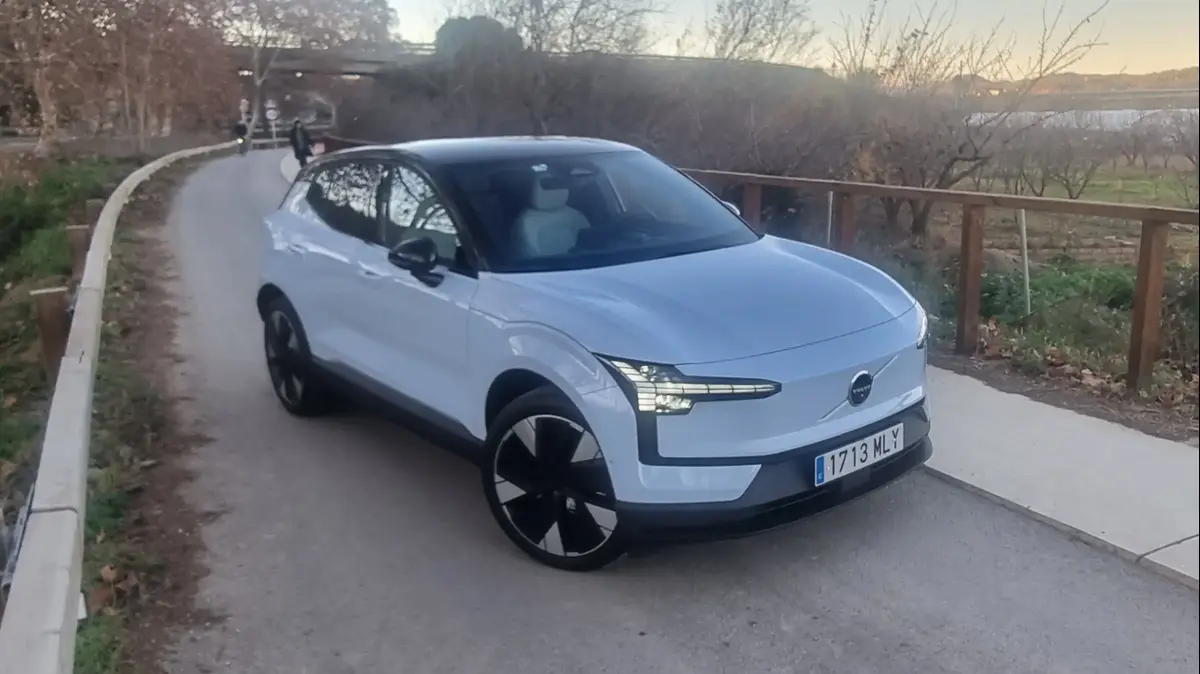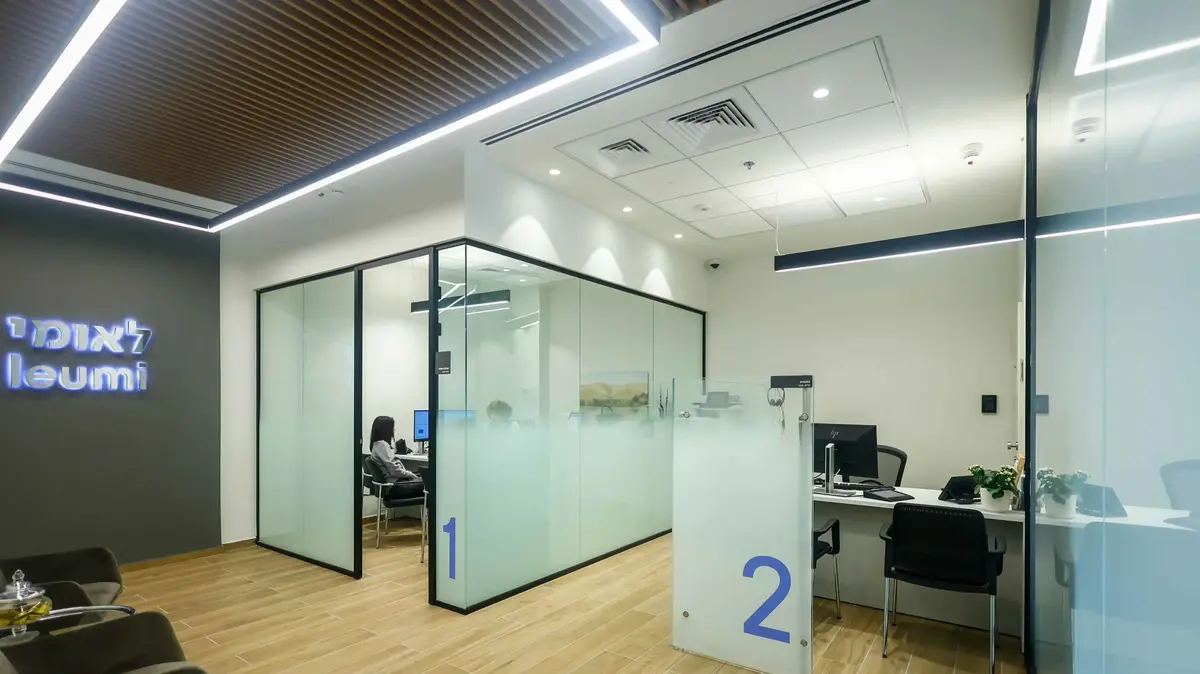An advanced technological platform enables efficient management of buildings and energy savings.
Start thinking smart
A smart building is an economical and green building
Photography:
Schneider Electric
About a month ago, a forecast was written in the New York Times, one of the most influential newspapers and opinion leaders in the world, regarding the future of the real estate world, and with an emphasis on the field of commercial real estate management and public buildings.
The paper reports that there is a practical possibility that the real estate industry will end the crisis, which the world has experienced in the past year, with a leap from the analog age straight into the 21st century and the digital age.
"The past year has contributed to accelerating the transition to a digital economy around the world. One of the areas we see accelerating the digital transformation is in real estate and the transition to smart buildings.
"We are seeing more and more maturity to integrate advanced technologies in the real estate world as well, ones that will make large buildings more cost-effective and more environmentally friendly," said Hagit Blitzer-Berkowitz, product manager and energy management solutions at Schneider Electric Israel.
Want to stay up to date all the time?
Sign up now for the Real Estate Newsletter today
Talking real estate with Ofer Petersburg. Listen to the new podcast >>
office buildings;
Commercial complexes such as hotels and malls;
And public buildings, for example: hospitals, universities, etc. - consume 36% of all global energy, and are responsible for carbon emissions at a rate of 39% of all global carbon emissions.
However, these data do not present the whole picture, because estimates suggest that about 50% of energy is wasted due to inefficient building management systems, and accordingly the maintenance and operating costs of the buildings skyrocket unnecessarily.
"This is a very heavy economic and environmental burden, which can be significantly reduced through a combination of technological solutions that are already on the shelf today," Blitzer-Berkowitz noted.
How much can you save?
Much.
Once the information on the building's electrical systems is transparent and monitored, the potential for savings can be identified consistently and continuously.
A simple example of the calculation can be seen in electricity bill expenses - data in Israel and around the world show that the use of digital building management technologies makes it possible to save 5% to 10% on electricity bills, and this can save hundreds of thousands of shekels in large office buildings. The buildings and other expenses.
From a regular building to a smart building
The question arises what is this technology that makes an office building smart?
Well, this is one of the branches of the digital world that has evolved and matured in the last decade and a bit.
It is a technology platform that corresponds with 5 megabytes of global trends that are included in digital change - sensors and sensing, cloud information management, analytics, mobility and advanced cyber security.
Energy management can actually be divided into 3 layers: in the first layer IoT-based sensors - Internet of Things or Internet of Things.
These sensors connect the building's electrical and energy infrastructure to an information network that flows non-stop, 24 hours a day, 7 days a week, and produces a database that allows for advanced and holistic monitoring of the building's electricity consumption.
The second layer is the end software layer, a brain that processes the data and allows the detection of energy waste points, danger of unwanted power outages or equipment failure, and streams the information in real time directly to the computer or mobile device.
The third layer is an analysis and advanced services layer, designed to provide the building managers with an in-depth analysis and optimization of the quality of the electrical system through analytics and expert services, in order to bring the building to peak function and maximum efficiency.
"Our technology platform in the field of energy management is called EcoStruxure Power," adds Blitzer-Berkowitz.
"It regularly monitors energy and electrical systems across a wide range of commercial buildings, complexes or campuses, and can be tailored to customer needs. The system detects faults to optimally address them and avoid unnecessary energy waste and expenses. Real-time information on all building systems.
“Making buildings smarter makes it possible to reduce energy costs, improve the energy efficiency of the building, meet customer or regulatory requirements regarding sustainability and carbon emissions, and increase the value of the building.
Another example of such a solution is Facility Expert, which includes a combination of energy monitoring and maintenance management, which maintains a productive, dynamic and comfortable environment for tenants and all users of the building. "
It should be noted that Schneider Electric's technology platform is compatible and approved for implementation according to the ISO 50001 energy management standard, which has recently gained multiple momentum and interest.
The standard is suitable for companies and organizations that want to reduce current operating expenses, streamline the utilization of energy sources and manage energy consumption optimally.
One of the interesting things is that this technology, which is one of the most advanced in the world, can be implemented not only in new buildings, but also in existing buildings.
"There is a concept that it is difficult to assimilate advanced technologies in old buildings, but this is a wrong and wrong thought. The way to turn an ordinary structure that stands on its own into a smart structure is not complicated at all," concludes Blitzer-Berkowitz.
"This is a process that requires initial planning and investment, but experience in Israel and around the world shows that the investment is repaid in a relatively short time. On average, we learn from assimilation in the world that this is a period of time ranging from less than a year to only 3 years."
Moving to a smart structure
Many buildings in Israel have already upgraded to smart buildings, and the transition to digital is still in its infancy.
Schneider Electric has experience of dozens of projects in which smart panels have been installed, which enable monitoring and management of the building using energy management software Power Monitoring Expert.
Among them you can find hospitals, data centers, campuses, commercial buildings, office buildings, factories, hotels and more.
As an international company, Schneider Electric has extensive and rich experience of tens of thousands of buildings in which its technologies have been implemented and become smart, green and economical.
Here are some local and international examples.
Copamlex Smart Plant - Solar Edge, Bird Industrial Park, Israel:
SOLAR EDGE, one of the most advanced companies in the world in the field of solutions in the field of solar energy, which owns a production and development plant in an area of 10,000 square meters that combines advanced systems in the field of building control and management of electrical and energy systems.
Monitoring and information helps reduce power outages - which are very costly, and can even damage critical equipment.
Schneider Electric's technology platform interfaces with the smart panels in the building, connects to Power Monitoring Expert energy management software, actively notifies facility operations managers of faults even before they occur, helps teams perform systems maintenance and maximize efficiency.
Smart Office Campus -
Boston Scientific
Headquarters
, USA:
The global headquarters of the manufacturer and developer of medical equipment includes a large office space, laboratories and more.
The company's goal was to optimize the performance of the complex, and in this way also to save on its operating expenses.
The company simply implemented the EcoStruxure Building Advisor system, which allowed it to microscopically examine and analyze the entire set of building systems.
This digital transformation carried out by Boston Scientific reduced by 40% the expenses related to malfunctions in the building, a 51% reduction in expenses related to electrical faults and a reduction in electricity consumption by more than 160,000 kilowatts / hour of electricity already in the first year of implementing the solution.
Smart Hotel -
Hilton Garden Inn
, Dubai, United Arab Emirates:
Located a short distance from Burj Khalifa, the tallest building in the world, the hotel has also been given a world name - as one of the greenest hotels in the world.
When it comes to a competitive environment at the heart of the tourist, Hilton has decided to differentiate and position this hotel even in its planning stages as a pro-environmental hotel, and with a strict environmental standard LEED GOLD.
The hotel has implemented the Schneider Electric technology platform and implemented an architecture that connects the building's control, guest rooms and property management, thereby increasing the building's energy efficiency.
For example, system sensors make it possible to detect an empty room, turn off the lights and adjust the temperature.
The hotel has reduced its electricity consumption by 25% to 44% compared to similar hotels, while at the same time increasing the satisfaction of its visitors.
Please get to know: Schneider Electric
Schneider Electric Corporation is active in more than 100 countries.
The corporation's revenues in 2019 stood at more than 27 billion euros, and the number of employees in the world stands at more than 160,000.
At the core of the company's activity is the digital transition of the areas of energy management and automation in industry, infrastructure, data centers, buildings and homes.
The Israeli branch of Schneider Electric, managed by Philip Brami, has about 120 employees.
The company is involved in aspects of energy management in national projects, such as: the new international airport in Timna, the Baha'i city in the Negev, the solar field in Ashalim and more.
Yaakov Abramovich in collaboration with Schneider Electric
What is stated in the article includes content and commercial / marketing information, and the Israel Today system is not responsible for its reliability.
The publication of the contents and commercial information in the article does not constitute a recommendation or offer by the Israel Today system to purchase and / or use the services or products in the article.









